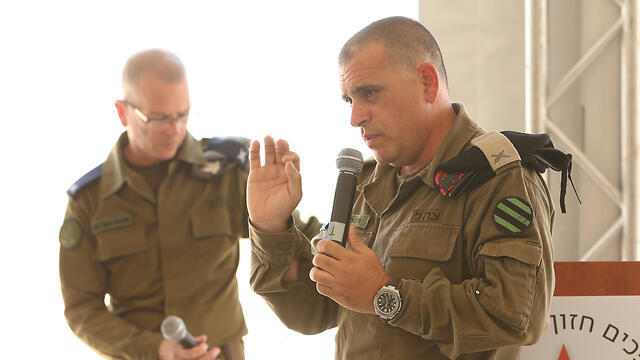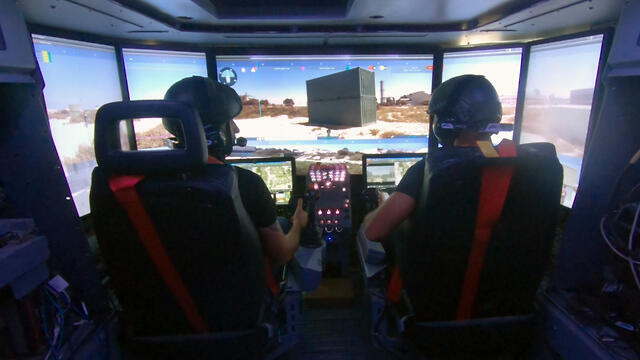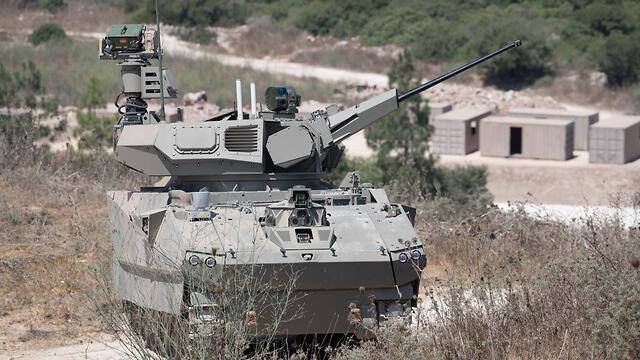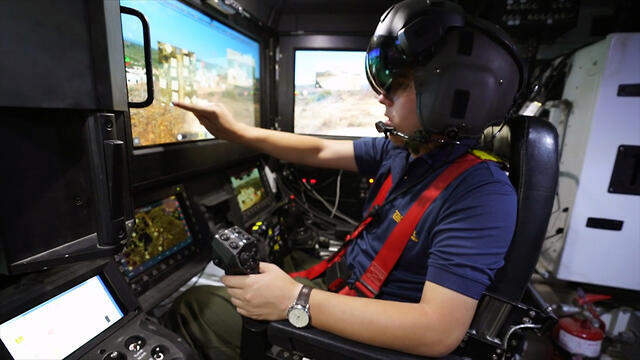Getting your Trinity Audio player ready...
Israel, a world leader in high-tech, is around 30 years away from its ambition of deploying robot forces, and for now will chose between three prototypes of semi-automated armored vehicles to cocoon its troops in battle, defense officials said on Sunday.
and Twitter
Israel has long eyed a future robot army as a means of reducing the use of soldiers on its combustible fronts with Gaza, Lebanon and Syria, just as its air force has increasingly relied on pilotless drones.
An unveiling of Israel's newly developed operating suites for ground fighting vehicles made clear it plans to keep soldiers at the controls, albeit entirely insulated from the outside: Hatches battened, the cabins will have smart-screens, fed by outside cameras and sensors, instead of windows or ports.
"Now the people will be sitting in the tank, it's closed, they are far better protected, and they can advance without worrying about snipers or other things," said Brigadier-General Yaniv Rotem, head of the Defense Ministry's development unit.
The prototype suites, designed by Israel's top three defense firms as they compete for a tender as part of the IDF's new Carmel tank program, include artificial intelligence systems billed as spotting enemy fighters and directing the vehicle's counter-fire at them automatically.
Asked why Israel was not eliminating human involvement entirely and operating the vehicles remotely, Rotem told reporters: "At the end of the day, it is the man in the vehicle who takes the decision. You need someone who thinks more than a machine."
4 View gallery


Brig. Gen. Guy Hasson, right, and Brig. Gen. Yaniv Rotem introduce the new prototypes
(צילום: אלעד גרשגורן)
The Defense Ministry, he said, was separately devoting "a lot of discussion" to a potential robot army of the future.
"Our vision (is), 30 years from now, a lot of autonomous capability," he said.
A second defense official said that while the suites could in theory be remote-operated, disruptions or delays in the signal would potentially impede their effectiveness in battle.
Two of the competing systems appeared inspired by video games and other home technologies, appealing to young soldiers. The country draws most of its military personnel from 18-year-old conscripts, who serve two (women) or three (men) years of national service.
State-owned Israel Aerospace Industries' has Xbox-style controls. Rafael Advanced Defense Systems, also state-owned, has a vehicle simulator with touch-screens and animation whose terrain and characters' garb recall Afghanistan - a nod to the U.S. Army, whose officers also inspected the display on Sunday.
The third Israeli bidder, Elbit Systems Ltd., came up with adapted air force helmets whose inside visors provide a 360-degree view of the vehicle's exterior. Rotem said Israel was already incorporating the helmets among its Merkava tank crews.




